Part 1 | Part 2 | Part 3
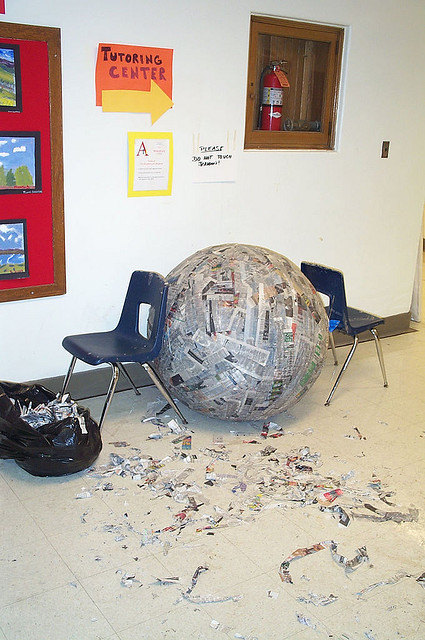
Last year I sent an Official Information Act request to all the state and integrated secondary schools in New Zealand that have year 12/13 students with a couple of questions about their school balls/formals. Many schools didn’t reply at all, and the Office of the Ombudsman is involved with those requests. Many schools didn’t have much experience with the OIA. And there’s a few things I could have done better.
Here’s what I said:
If you hold a school ball or formal could you please answer the following questions? Do you have a policy on same-sex dates? If so, could you please email me a copy of that policy?
In the past, has the school banned same-sex dates from attending the school ball or formal? If so, could you please provide details?
Do you have a policy on parties before/after the school ball or formal? If so, could you please email me a copy of that policy? [note that if schools interpreted this as a written policy, many will have responded with no policy when they do indeed have common practices and procedures]
And here’s the meat of the replies.
Same-sex dates
Darfield High is perhaps one of the more honest schools, and might not deserve to be in the same category as the other schools listed below. They admit that in the past same-sex partners weren’t permitted at their balls. This would have happened at other schools too.
Greymouth High School elect a king and queen. This probably happens at other schools too. Is it an inclusive practice?
‘Case by case basis’ is mentioned a lot in these replies. This doesn’t apply to opposite-sex dates that want to attend to the ball. Is it fair to subject same-sex dates to an additional process, just because of their sex?
Rejecting friends and mates of the same-sex as partners also came up. Are friends and mates of the opposite sex declined as dates? Is having to be gay, or having to prove that you’re gay, by signing something, or whatever, to take a same-sex date to a ball/formal acceptable?
Inviting sports teams to the formal/ball also came up as an excuse to treat same-sex couples differently. I wonder if the members of a mixed sports team attending the formal/ball would, as one schools says, “make a mockery out of the occasion”. I wonder how many times a same-sex sports team has attended the event at these schools. If it has happened, I wonder if they are being slightly over-dramatic regarding the negative effect it caused.
Christchurch Adventist School is the only school, out of those that actually replied, that flat-out says same-sex dates wouldn’t be permitted.
Campion College says they “generally [do not permit same-sex dates] due to a previous issue with vandalism”. I wonder if effectively banning same-sex dates is the best solution for this situation. I wonder how vandalism of a significant nature can occur during a supervised event.
Here’s what St Patrick’s College Wellington (the one that was in the news last year) said:
“Do you have a policy on same-sex dates?
No we do not.
Has the school banned same-sex dates in the past?
No as this has never arisen before.
Do you have a policy on parties before/after the school ball or formal? No we do not.”
—
Wellington Girls College
- “No we don’t have a policy on same sex dates. If girls are in a same sex relationship they can bring their partner but we deal with this on a case by case basis. No we haven’t banned a same sex partner – we have said no to a friend from another school who just wants to come along to go to the ball though.”
- “No we don’t have a policy on parties before/after ball. We simply say to parents and girls we don’t support after ball parties and if we hear of them we tell the Police. Pre ball parties – we ask parents to be vigilant.”
Sancta Maria College
- “We do not have a policy on same sex dates although outside ‘partners’ cannot be “mates” of the same sex” “The students understand that all we are trying to avoid is a group of boys for example arranging to bring their Rugby Club team to the Ball by having them as ‘partners’. This is not the purpose of the Ball.”
- “We do not have a policy but the school strongly discourages pre-ball and post-ball parties where alcohol is served.”
Darfield High School
- No policy, same-sex dates not recently banned: “I have been at the school for 2 and a half years. I have been told that some years prior to this there was some issue with same sex dates.”
- No policy on functions
St Thomas of Canterbury College
- “Our students seem to have a wide circle of female friends and there has been no demand or requests from our students beyond that to date. If a student wanted to bring a same sex relationship partner we would be happy to accommodate that on a case by case basis.” No response to my request to elaborate.
- “Our school ball is a community model ie the majority of parents and staff attend so the function is 50% student 50% adult. In terms of pre ball and post ball functions we work together with our students and discuss the pros and cons of these and inherent problems as well as safe measures if hosting in the home. As our function starts quite early at 6.30pm, involves a dinner and ball and finishes at 1am, our students have chosen in recent years not to have formally arranged after parties at booked venues.”
Christchurch Adventist School
- As a Christian Adventist school (“Special Character – and biblical same-sex dating is not accepted as part of the faith community”). Also as we have students from Years 0-13 and hence we don’t encourage any relationships of any kind. We are a small area school so monitoring and dealing with the issues are manageable.
- No policy on functions
Campion College
- “The College does not have a written policy on same sex partners but generally does not permit it due to a previous issue with vandalism created when a group of students brought their ‘mates’ from another school. We reserve the right to decline any partners from outside the College attending.” Me: “So that’s more to stop troublemakers who are coming as friends, not dates?” “That’s correct.”
- Ball finishes at 1am to try to discourage after parties
Kavanagh College
- No policy – “I would however draw the line at say, for example, half the 1st XI soccer boys (or netball girls or whomever) want to take the other half just to make a mockery out of the occasion.”
- “Like most schools we would prefer they did not occur. The main issue for the Board and management of the college is safety. In the past we have written/communicated to parents and students giving them firm advice and guidelines about safety and the legal ramifications of under-age drinking, or running large scale pre or post events etc. To date we have been fortunate that any events of this type, if they have occurred, have been well organised and managed by a wide group of parents.”
St Bede’s College
- “I wouldn’t have a problem with it. However, it would have to be a senior management decision if the issue came up. As it hasn’t to date no policy has been made.”
- No policy on functions
Tauranga Boys’ College
“We do not have a specific policy on same sex dates attending but treat each case as an individual situation. Last year we had two males from the college attend the ball together. I’m unaware of their sexual preferences as it wasn’t an issue in the decision being made.” “If the situation arises we will talk it through with those involved and then make a decision.”
“We discourage pre-balls and after-balls and reserve the right to cancel the ball if we are are aware of a gathering being planned involving significant numbers. We appeal to our parents to use their judgement and manage the situation sensibly. I have refered to this in my latest newsletter which will be available on our website in a couple of days. We start the ball at 6.30 with a formal meal for yr 13 students only and try to make the ball itself the main event of the evening for our students.”
School attitudes towards balls/formals
- Martin Isberg from Wainuiomata High School points out that in every letter about their formal/ball they have sent out over the past few years, “press coverage after a couple of incidents in Auckland” has been included.
- Breath testing and bag searching came up a bit, which is concerning from a civil rights standpoint.
- In similar Big Brother fashion, Craighead Diocesan School requests a list of all the students attending before ball events.
- Other schools mentioned making students not want to leave the event, or making it finish late so students wouldn’t have after parties.
- Some schools have dinners and other events instead of balls/formals.
- Thames High School notes that parents in conjunction with a student committee and community health providers have previously organised a controlled after ball with limits on alcohol, security, food, non-alcoholic drinks and transport being provided and attendance limited. But now it’s frowned upon by the police, and I assume the students run their own, less well supervised after parties.
General replies, with policies or comments
Albany Senior High School
- No policy on same-sex dates
- “If our Principal hears anything about an after ball party then the ball will be cancelled”
Alfriston College
- No policy on same-sex dates
- “If your child does intend to attend any Pre-Ball function we ask that you ensure that no alcohol is consumed. The Police have made it quite clear that they will close down any organised After-Ball event.”
- Attached – pdf
Aparima College
- No policy on same-sex dates, “all applications for [outside] dates to our ball are treated equally”, application to bring date from outside school involves references from their school or employer/other non-related reputable adult
- No involvement with functions, allows SADD (students against drunk driving) representatives to liaise with senior students to discuss safe options, responsible parents organize after ball (including buses, supervision and bouncers), local police make an appearance, never had any problems
Aranui High School
- No policy on same-sex dates
- “We take every step to ensure that intoxicated students are removed by security guards before entry to the venue of the formal.”
Aurora College
- No policy on same-sex dates
- No policy on functions – small school, no problems in past with after functions
Awatapu College
- No written policy on same-sex dates, “students are free to bring a partner of their choice”
- No written policy on functions, reserves the right to reject partners based on behavioral history. “Students under the influence of drugs or alcohol will not be admitted to the ball and parents will be contacted to come and collect them. We have tight security and supervision, which includes a search prior to entry, in addition to the filter of the principal’s reception line.” “If we hear of any large scale organised parties, we inform the police.”
Bayfield High School
- No policy on same-sex dates
- No policy on functions, “but we do have policies around alcohol and the school. You have not requested those.” Not encouraged, not banned, schools name cannot be used. Must arrive at formal sober. Before ball parties have never been an issue.
Cashmere High School
- No policy on same-sex dates
- “We ask for information about them but send a letter to all parents explaining that we are not involved in these in any way.”
Central Hawkes Bay College
- No policy on same-sex dates
- Urge students to be sensible, generally have good co-operation from students and wider community
Coastal Taranaki School
- No policy on same-sex couples
- “Parties (if involving [drugs and alcohol]) are not sanctioned by the Board”
Craighead Diocesan School
- No policy on same-sex dates
- Letter to students/parents ask them to let the school know if they’re planning on holding a before formal event. Asks for list of students attending. Recommends limits on alcohol. Parents and students sign form stating that there will be no after formal functions.
- Attached – copied from email – pdf
Cullinane College
- No policy on same-sex dates
- “If we become aware of any mass gatherings we contact the Police”
Edgewater College
- No policy on same-sex dates
- “They all know that if they turn up intoxicated they will be refused entry. We employ security to assist and bags are checked prior to entry. If alcohol was found they would be sent home. Years ago students did run an organised after ball that went off without problems. The following year it fell through and didn’t happen and since that time there has never been an organised after ball in the sense of organised venue, alcohol via the entry ticket, security guards organised or parent organised.”
Epsom Girls’ Grammar School
- No policy on same-sex dates
- Police talk to students about legal issues around pre and after ball parties. Forward information to families from the police and council regarding these events.
Fairfield College
- No policies
- Attached – exported to pdf from .doc
Freyberg High School
- No policy on same-sex dates
- “An arranged after ball function would put the ball at risk of being cancelled”
Greymouth High School
- No policy on same-sex dates
- “Can breath test on entry”
- Attached – exported to pdf from .doc
Hamilton Boys’ High School
- No policy on same-sex dates
- “The School follows a practice of discussing each year with senior students whether or not a school ball will be held and, if so, what arrangements or conditions will apply, including such topics as who will be invited and any associated events”
Hamilton Girls’ High School
- No policy on same-sex dates
- Can breath test on entry
Hurunui College
- No policy on same-sex dates
- “We often have breath testing before entry. We are not obliged to hold a ball and the health and safety of our students is paramount. We do not want to have students in car smashjes or suffereing alcohol poisoning after a school organised event.”
Hutt Valley High School
- No policy on same-sex dates
- All students breath tested and bags checked, no level of alcohol is permitted, parents asked not to hold pre-ball events
- Require 85% attendance to attend the ball, students may not leave until 30 minutes before the ball ends
John Paul II High School
- No policy on same-sex dates
- May be breath tested
- Attached – pdf, attached – exported to pdf from .doc
Kamo High School
- No policy on same-sex dates, “the rules of justice and equity apply to everyone”
- No policy on functions, no events sanctioned by school
Kelston Girls’ College
- No policy on same-sex dates
- No policy on functions
- Expectations covered by letter sent to parents
Lincoln High School
- No policy on same-sex dates
- No policy on functions
- One approved alcohol-free after ball is organized by youth workers
Macleans College
- No policy on same-sex dates
- We have made a ruling that if there is a post-ball party planned the ball will be cancelled.
Mana College
- No policy on same-sex dates
- EXpect students to arrive and leave sober
Maniototo Area School
- No policy on same-sex dates
- Any after party is not a school function.
Manurewa High School
- No policy on same-sex dates
- Search students on entry to ball venue “as required by the venue” and have breath testing there to be used if necessary. School Police Constable attends and the Police are notified of the event
Matamata College
- No policy on same-sex dates
- Tickets not allowed to be sold at school, reserve the right to breath test at the ball
Middleton Grange School
- No policy on same-sex dates
- Letter to parents/students suggests alcohol not be available at post-formal functions, along with other recommendations around supervision. – Pupils are not to be involved in pre-functions where alcohol is available. The school requests that parents provide vigilant oversight in this important matter and be consistent with this policy. Pupils will not be permitted entry if they do not abide by this request.
- Attached – exported to pdf from .doc
Nelson College For Girls
- No policy on same-sex dates
- We do however ask that pre ball parties are alcohol free. This year we intend to breath test as students arrive. We expect that there will not be any after parties. The school does not associate itself with any such event and would contemplate cancelling the formal if any were organised.
New Plymouth Girls’ High School
- No policy on same-sex dates
- “Small family gatherings in private homes with family and friends are permitted. Large pre-after ball events are not permitted. Our stance mirrors that of the police that is outlined in the letter they sent to schools. Gatherings planned in secret, sale of tickets, provision of alcohol to minors, buses to and from venues are deemed to be illegal gatherings.The police will be notified if any events of this nature come to our notice. We test any attendee at the ball that we suspect to be under the influence.”
Newlands College
- No policy on same-sex dates, “queer students obviously have the same rights as any other students”. “We have peviously had students bring same-sex partners to the ball without any issue being made.”
- No policy on functions
Opotiki College
- No policy on same-sex dates
- Breath test all ball goers at door so there can be no drinking at pre-balls. Post-ball gatherings are registered with local police so they can keep an eye on.
Otaki College
- No policy on same-sex dates
- No policy on functions
- Attached – exported to pdf from .doc
Otumoetai College
- No policy on same-sex dates
- All students breath tested on entry, if a student fails the test they can get picked up by their parents or wait in a secure area and get retested after an hour, after a second failure parents are contacted and disciplinary action occurs the next school day, Police are called if it is an outside partner
Papatoetoe High School
- No policy on same-sex dates
- “We provide local authorities with any information they request with regard to the timing of our ball, etc.”
Piopio College
- No policy on same-sex dates
- “The Ball is being held on the assurance of the Student Council that no ‘after-ball’ function will take place.”
Queens High School
- No policy on same-sex dates
- No policy on functions
- Attached – exported to pdf from .doc
Raglan Area School
- No policy on same-sex dates
- “Students have not these last two years organised formal parties either before or after and I have a request to extend the hours of the ball as they are not planning any other event this year either”
Rangiora High School
- No policy on same-sex dates
- Know they take place, give guidelines to parents, students not admitted entry if they are “tanked up”
Rangitoto College
- No policy on same-sex dates
- After balls effectively banned. “The College is organising the ball on condition that it is not followed by any large scale ‘After Ball’ function. Should the College be informed of such an event then the Ball will be cancelled. If the event occurs subsequent to the Ball then school management would have to consider very carefully whether they would be prepared to run any school balls in the future.
- Any student who is involved in the organisation of such an large scale after ball function will be considered by the school management to have undertaken an act of Gross Misconduct as defined by Section 14 (1) (a) of the Education Act and will have to face a Board disciplinary hearing.
- We are happy with the idea of small functions after the Ball in private homes where parents take responsibility for supervising the safety of students. If you are planning to have a group to your house after the Ball and would like to check whether it fits our criteria, please don’t hesitate to ring”
Rathkeale College
- Runs ball with St Matthew’s Collegiate (Masterton)
- No policy on same-sex dates
- No policy on functions
- “While some student leavers’ may gather pre-ball, this is not an issue as from about 4.00pm students are gathered at our schools for photographs etc and the ball commences at 6.00pm. After the ball most students and their parents stay in accommodation provided at the venue. There is overwhelming parental control at the ball and after the ball. It is a function that is not officially a school function. It is organised by parents for their Year 13 sons and daughters who have actually left school, but the two principals have the say on how it managed. The arrangement works very well for our schools.”
Reefton Area School
- No policy on same-sex dates
- We actively discourage pre-ball post-ball parties and promote that position widely in the community. It doesn’t stop it happening mainly because parents arrange them.
Reporoa College
- No policy on same-sex dates
- No policy – “we do however have a practice of breathalysing upon entry to the ball”
- Attached – pdf
Sacred Heart Girls’ College (N Plymouth)
- No policy – “Cannot comment on past as i haven’t been here long enough”
- “I issue a statement in a letter to ball going students that we will not tolerate after ball parties. If I hear of one I reserve the right to cancel the ball.”
Selwyn College
- No policy on same-sex dates
- No policy – supports parents concern re pre/post ball functions, reminds them that serving liquor to minors at any function would breach licensing arrangements and that functions should be supervised and have food available; don’t condone after ball functions either
Shirley Boys’ High School
- No policy on same-sex dates
- Visually check for influence of alcohol/drugs, no authority to ban after ball parties
Southland Boys’ High School
- No policy on same-sex dates
- The students, parents and police hold an after ball function. This is not a school event as such, but is managed by parents and the police with the support and co-operation of the school. It is the only after ball event that is sanctioned by the school. As part of the work we do with police and health workers, after ball activities and acceptable behaviours are negotiated with the students. We have not had any issues with students, parents, police with regard to this
St Hildas Collegiate
- No policy on same-sex dates
- “SADD Committee organise a post formal function – it is not a school event and is run by SADD representatives and parents. This event has been very successful and extremely well supervised.”
St John’s College (Hastings)
- No policy on same-sex dates
- “We do not allow after ball parties. Our statement to parents is that if we find out a large after ball party is being organised we will cancel the ball.”
St Mary’s College (Ponsonby)
- No policy on same-sex dates
- “We write in the letter to parents and students that the school does not approve of any pre-ball and after-ball parties. Parents and students are required to sign the return slip in the letter to say they understand these are the conditions for the students to attend the ball.”
St Peter’s College (Palmerston North)
- No policy on same-sex dates
- Senior charity evening instead of ball – “pre and after-functions are NOT acceptable”
- Attached – exported to pdf from .doc
Taita College
- No policy on same-sex dates – in a typical year all date applications are approved
- No policy on functions – no involvement
- “Given the recent event we are in the process of preparing information for a policy which will be in place for any ball held from 2012.”
Takapuna Grammar School
- No policy on same-sex dates
- Actively discourage the holding of after-balls
Tauranga Girls’ College
- No policy on same-sex dates
- “We have a contract signed by those attending that they will obey the TGC code of conduct while at the ball and that they will not organise or attend post ball events of the paid tickets / alcohol supplied / secret venue type.”
Tawa College
- No policy on same-sex dates
- “A breathalyser will be present and students may be randomly tested to check that the specified boundaries with regard to alcohol have been respected.” “The Formal is the main event of the evening. We do not want to hear of large parties occurring either before the Formal, or after the Formal is over. Such parties, in our experience, bring trouble of one sort or another, reflect very badly on the school, and can cause considerable grief to parents if they get out of hand.”
- Attached – exported to pdf from .doc
Te Awamutu College
- No policy on same-sex dates
- No policy on functions
- Attached – pdf
Thames High School
- No policy on same-sex dates
- “We have told students of our intention to breath-test all students, with any students who return a positive test being denied entry to the Ball. We also intend to randomly test students during the course of the evening to guard against students ‘smuggling’ alcohol into the function. – there has been a Safe After-Ball Party. This has been organised by a student committee supported by parents and community health providers. This function was organised following Alcoholic Liquor Advisory Council (ALAC) guidelines, and included strict limits on the type and quantity of alcohol that students could take into the function, a high level of security being provided, entry restricted to students who had attended the Ball, food and non-alcoholic drinks being provided, and transport provided to and from the venue (so that no students were driving). Over the past two years the context for such functions has changed. Police no longer support this concept, particularly because it is now considered to breach the law in relation to students under the legal age being supplied with alcohol, and a place to consume alcohol.”
- Attached – exported to pdf from .doc
Waiheke High School
- No policy on same-sex dates
- No policy on functions. “Each year the local police are present at the start of the Ball and also pop in during the event.”
Wainuiomata High School
- No policy on same-sex dates
- “If we become aware of any large-scale organised function on the night, we will pass that information on to the Police.”
Waitaki Girls’ High School
- No policy on same-sex dates
- No policy on functions. “I am aware that there is an after formal function which parents and the police organise completely independent of this school.”
Wanganui Girls’ College
- No policy on same-sex dates
- “Our ball is run as a private event off school site by senior students and their parents and what they choose to do before or after the ball we consider their business. We advise parents and students that they should be cautious of arranging such events, but in the end, it is their business.”
Wellington East Girls’ College
- No policy on same-sex dates
- “Students often attend pre ball functions at the homes of parents. The functions are alcohol free events.”
Western Springs College
- No policy on same-sex dates
- “If we receive information about the organisation of an after-ball event involving the illegal supply of alcohol, we will pass this on to the NZ Police. Students have been advised not to organise large scale pre- or after-ball events and not to sell tickets for such events which offer the bearer the illegal supply of alcohol.”
Westlake Girls’ High School
- No policy on same-sex dates
- No policy – “although we would be very happy if they did not occur”
Replied, with no policies on same-sex dates or functions
- Akaroa Area School
- Aotea College
- Aquinas College
- Ashburton College
- Auckland Grammar
- Avonside Girls’ High School
- Blue Mountain College
- Botany Downs Secondary College
- Cambridge High School
- Cheviot Area School
- Christchurch Boys’ High School
- Columba College
- Coromandel Area School
- Cromwell College
- Dannevirke High School
- East Otago High School
- Edgecumbe College
- Garin College
- Glendowie College
- Glenfield College
- Gore High School
- Hagley Community College
- Hamilton’s Fraser High School
- Hato Petera College
- Hawera High School
- Hillmorton High School
- Inglewood High School
- James Hargest College
- John McGlashan College
- John Paul College
- Kaikohe Christian School
- Kaikorai Valley College
- Kaitaia Abundant Life School
- Kapiti College
- Kelston Boys’ High School
- Kingsway School
- Lindisfarne College
- Liston College
- Logan Park High School
- Long Bay College
- Lynfield College
- Manawatu College
- Mangere College
- Massey High School
- McAuley High School
- Mercury Bay Area School
- Michael Park School
- Mt Maunganui College
- Mt Roskill Grammar
- Naenae College
- Nayland College
- Nelson College
- Nga Tawa Diocesan School
- Northland College
- One Tree Hill College
- Onehunga High School
- Onslow College
- Opononi Area School
- Orewa College
- Otahuhu College
- Otamatea High School
- Otorohanga College
- Pakuranga College
- Palmerston North Boys’ High School
- Palmerston North Girls’ High School
- Papakura High School
- Paraparaumu College
- Putaruru College
- Queen Elizabeth College
- Riccarton High School
- Rodney College
- Rongotai College
- Rotorua Boys’ High School
- Rotorua Lakes High School
- Roxburgh Area School
- Rutherford College
- Sacred Heart Girls’ College (Ham)
- South Westland Area School
- St John’s College (Hillcrest)
- St Mary’s College (Wellington)
- St Oran’s College
- St Patrick’s College (Kilbirnie)
- Stratford High School
- Taieri College
- Taihape Area School
- Tamatea High School
- Tararua College
- Tauraroa Area School
- Te Kuiti High School
- Te Kura Maori o Porirua
- Te Kura Taumata o Panguru
- Te Puke High School
- Te Wharekura o Arowhenua
- TKKM o Te Koutu
- Tokoroa High School
- Tongariro School
- Upper Hutt College
- Waiopehu College
- Wairoa College
- Waitara High School
- Wanganui City College
- Wanganui High School
- Wellington High School & Com Ed Centre
- Wesley College
- Westland High School
- Whangaparaoa College
- Woodford House
Replied, don’t have a ball/formal
- Christian Renewal School
- Collingwood Area School
- Excellere College
- Francis Douglas Memorial College
- Hastings Christian School
- Hauraki Plains College
- Hillview Christian School
- Hukarere College
- Karamea Area School
- Kokohuia School
- Lake Taupo Christian School
- Lawrence Area School
- Longburn Adventist College – “ceased holding formals”
- Mana Tamariki
- Manaia School (Thames)
- Mangakahia Area School
- Marist College
- Murchison Area School
- Patea Area School
- Ponatahi Christian School
- Rai Valley Area School
- St Joseph’s Maori Girls’ College
- Tai Wananga
- Taikura Rudolf Steiner School
- Te Aute College
- Te Karaka Area School
- Te Kura Mana Maori o Whangaparaoa
- Te Waha O Rerekohu Area School
- Te Wharekura o Manurewa
- Te Wharekura o Te Kaokaoroa o Patetere
- TKKM o Hoani Waititi
- TKKM o Kaikohe
- TKKM o Nga Mokopuna
- TKKM o Ngati Kahungunu Ki Heretaunga
- TKKM o Ruamata
- TKKM o Tamaki Nui A Rua
- TKKM o Te Kura Kokiri
- TKKM o Te Raki Paewhenua
- TKKM o Te Whanau Tahi
- TKKM o Tupoho
- TKKM o Wairarapa
- TKKM o Waitaha
- Totara College of Accelerated Learning
- Trident High School
- Twizel Area School
- Waimea College
- Wellington College
- Whangaroa College
- Zayed College for Girls
Image credit: stu_spivack

 On 22 July 2016 a woman was sexually assaulted while walking through the University of Canterbury owned Ilam Fields.
On 22 July 2016 a woman was sexually assaulted while walking through the University of Canterbury owned Ilam Fields.

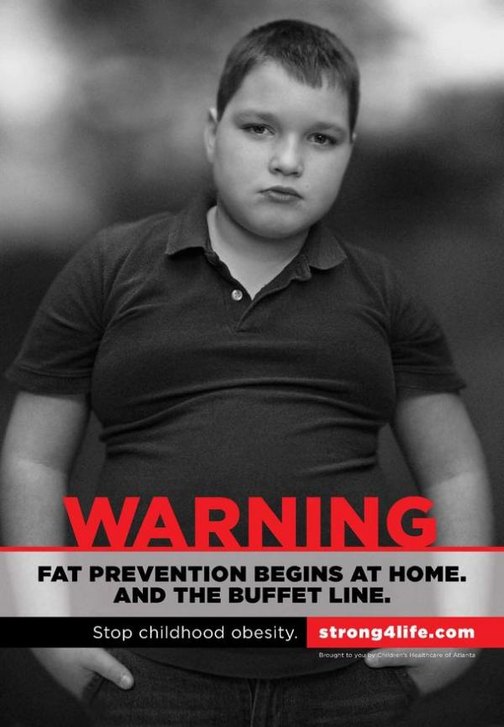

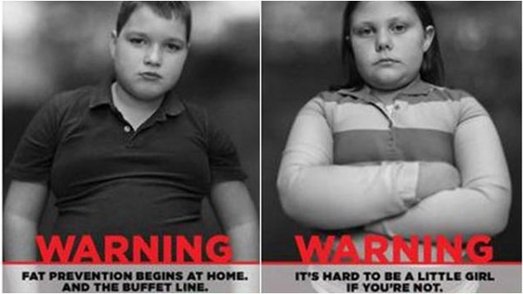
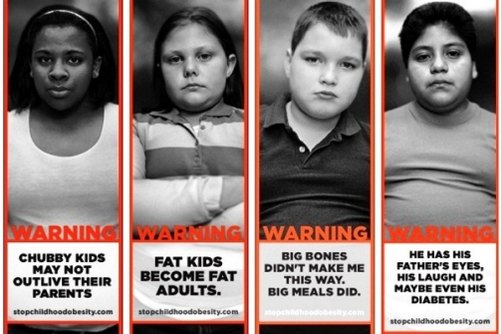
 Their reply to
Their reply to 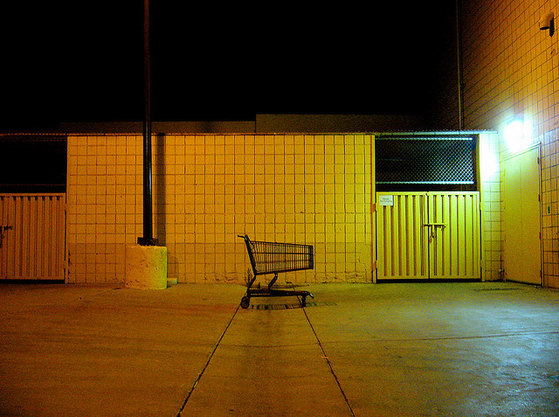
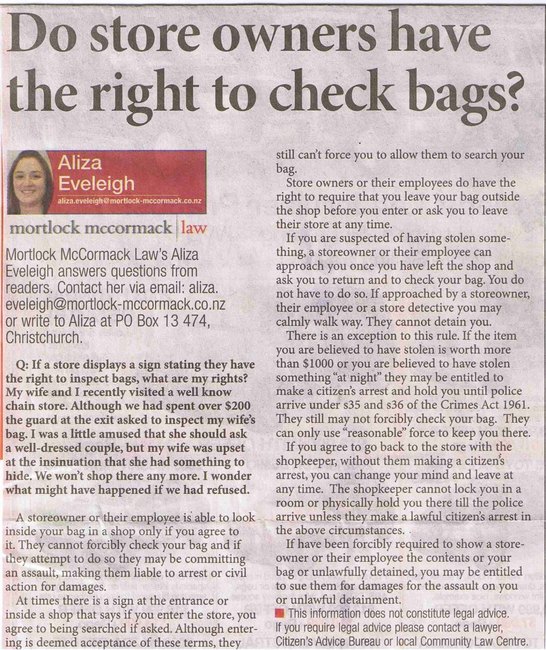
 Basically, since the program started in 1996, there were 1,348 fewer fatal crashes involving 16-year-old drivers, which looks great on the surface. But, there were 1,086 more fatal crashes involving 18-year-old drivers, which could be because young drivers are waiting until they are 18 to bypass restrictions.
Basically, since the program started in 1996, there were 1,348 fewer fatal crashes involving 16-year-old drivers, which looks great on the surface. But, there were 1,086 more fatal crashes involving 18-year-old drivers, which could be because young drivers are waiting until they are 18 to bypass restrictions.
 A Tauranga schoolgirl had an abortion “arranged” by a school counselor without her parents’ knowledge. Her mum, angry at not being informed, spoke to the media. This promoted calls for girls under 16 to require parental consent to go through with an abortion. Under the Care of Children Act there is no age restriction to give consent to an abortion. In 2004, then opposition MP Judith Collins tried to change this, but it didn’t pass.
A Tauranga schoolgirl had an abortion “arranged” by a school counselor without her parents’ knowledge. Her mum, angry at not being informed, spoke to the media. This promoted calls for girls under 16 to require parental consent to go through with an abortion. Under the Care of Children Act there is no age restriction to give consent to an abortion. In 2004, then opposition MP Judith Collins tried to change this, but it didn’t pass.